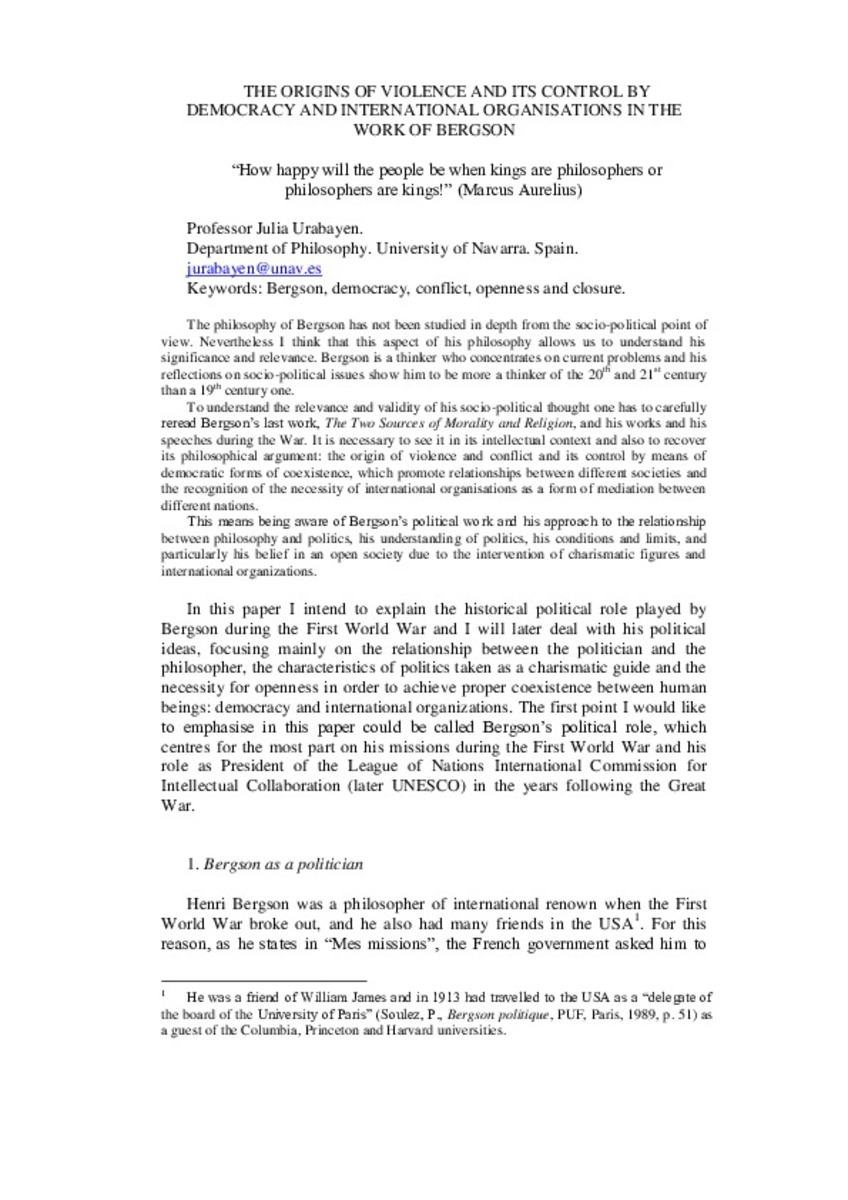The origins of violence and its control by democracy and international organisations in the work of Bergson
Files in This Item:
Statistics and impact
Items in Dadun are protected by copyright, with all rights reserved, unless otherwise indicated.







